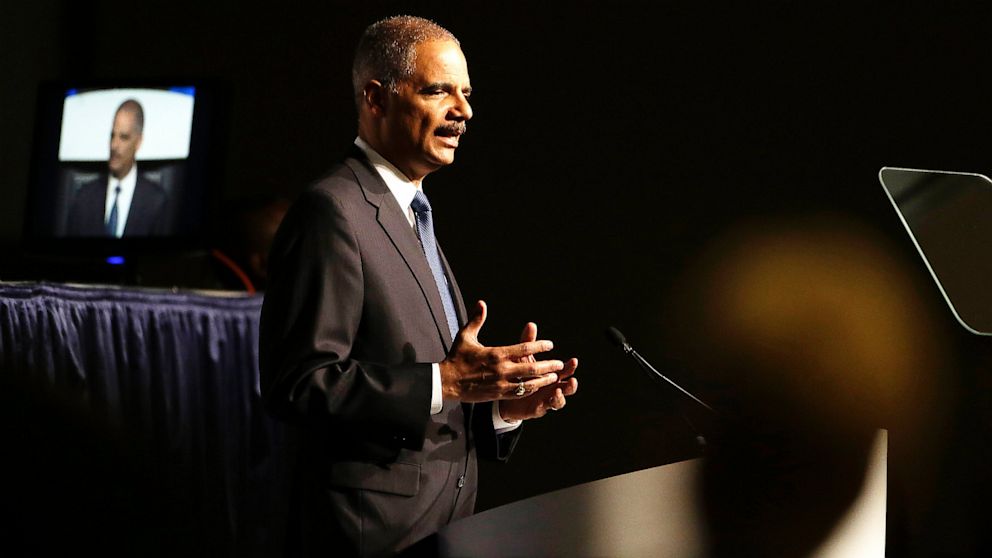4 Ways Obama Administration Wants to Revamp Justice System
Eric Holder hopes U.S. justice system to be "fair" and "smart" with new reforms.

Aug. 12, 2013 -- intro: During his confirmation hearing to become the nation's top law enforcement official, Attorney General Eric Holder vowed, "We have to be tough, we have to be smart, and we have to be fair" in the U.S. criminal justice system. More than four years later, he is now announcing major reforms the administration maintains will accomplish those goals.
In making his announcement, Holder noted that incarceration has cost taxpayers nearly $80 billion annually in recent years -- money that could be put to use elsewhere in these challenging economic times. And while the U.S. population has increased by about a third since 1980, the federal prison population has grown by almost 800 percent in that time – an "astonishing rate," according to Holder.
"It's clear … that too many Americans go to too many prisons for far too long, and for no good law enforcement reason," Holder said today in remarks to the American Bar Association's annual convention in San Francisco. What's more, "many aspects of our criminal justice system may actually exacerbate" the "vicious cycle of poverty, criminality, and incarceration" rather than alleviate it, he said.
So here are the main reforms as Holder announced today:
quicklist:1title: PUSHING PROSECUTORS TO WEIGH WHETHER FEDERAL CHARGES SHOULD BE BROUGHT AT ALLtext: "Some issues are best handled at the state or local level. And that's why I have directed the United States Attorney community to develop specific, locally-tailored guidelines – consistent with our national priorities – for determining when federal charges should be filed, and when they should not," Holder said. "By targeting the most serious offenses, prosecuting the most dangerous criminals, directing assistance to crime 'hot spots,' and pursuing new ways to promote public safety, deterrence, efficiency, and fairness – we can become both smarter and tougher on crime."
quicklist:2title: REFORMING MANDATORY MINIMUMS FOR NONVIOLENT DRUG OFFENDERStext:"Some statutes that mandate inflexible sentences – regardless of the facts or conduct at issue in a particular case – reduce the discretion available to prosecutors, judges, and juries," Holder said. "I have mandated a modification of the Justice Department's charging policies so that certain low-level, nonviolent drug offenders who have no ties to large-scale organizations, gangs, or cartels will no longer be charged with offenses that impose draconian mandatory minimum sentences. They now will be charged with offenses for which the accompanying sentences are better suited to their individual conduct, rather than excessive prison terms more appropriate for violent criminals or drug kingpins."
quicklist:3title:REDUCING SENTENCES FOR ELDERLY, NONVIOLENT OFFENDERStext: "The Department has updated its framework for considering compassionate release for inmates facing extraordinary or compelling circumstances – and who pose no threat to the public," Holder said. "In late April, the Bureau of Prisons expanded the criteria which will be considered for inmates seeking compassionate release for medical reasons. Today, I can announce additional expansions to our policy – including revised criteria for elderly inmates who did not commit violent crimes and have served significant portions of their sentences."
quicklist:4title:OFFERING ALTERNATIVES TO INCARCERATION FOR LOW-LEVEL, NONVIOLENT OFFENDERS text: "[We] are taking steps to identify and share best practices for enhancing the use of diversion programs – such as drug treatment and community service initiatives – that can serve as effective alternatives to incarceration," Holder said, noting such efforts in Texas reduced the prison population by more than 5,000 inmates last year alone. The same year, similar efforts helped Arkansas reduce its prison population by more than 1,400, Holder said.
According to the Families Against Mandatory Minimums foundation (Famm.org), it costs $28,000 each year to incarcerate a federal prisoner. A residential drug treatment program, by contrast, costs about $6,800 a year -- which means the U.S. government could be saving the difference.
"It's time – in fact, it's well past time – to address persistent needs and unwarranted disparities by considering a fundamentally new approach," Holder concluded. "The course we are on is far from sustainable. And it is our time – and our duty – to identify those areas we can improve in order to better advance the cause of justice for all Americans."



